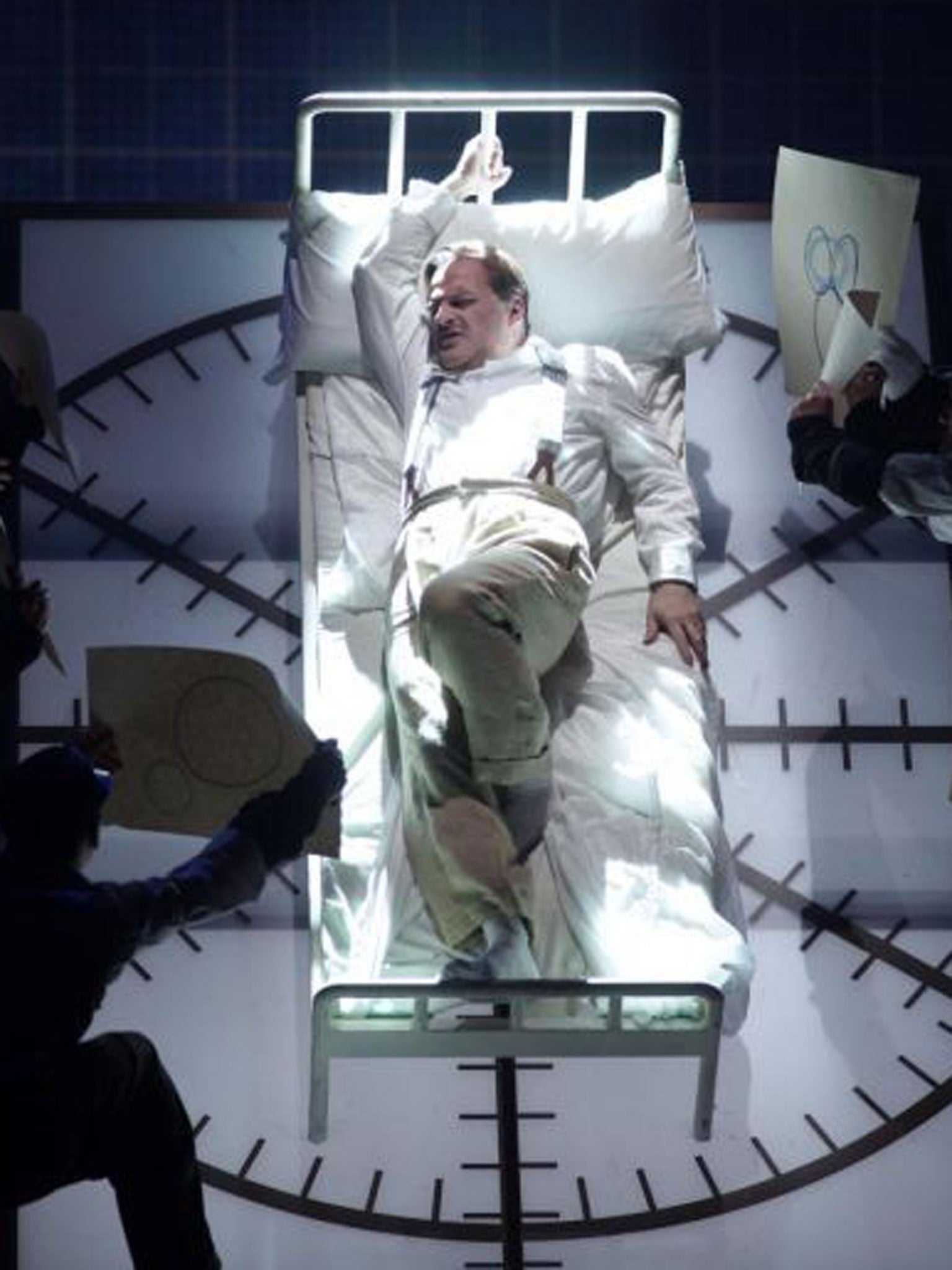Opera review: The Perfect American, Coliseum, London
This is less an opera than a failed attempt at Citizen Kane

Like one of those long-distance locomotives that its chorus incessantly sings about, Philip Glass’s new opera has been noisily puffing its way towards us ever since its Madrid premiere in January.
Echoing the fictionalised biography of Walt Disney by Peter Stephan Jungk on which it is based, The Perfect American is predicated on the fact that its protagonist is anything but: a pathologically insecure country boy with conservative, misogynistic, and racist views; a man devoid of artistic talent who ruthlessly exploited the talents of his employees.
But as Glass has been telling anyone who will listen, this work is not designed to rubbish its subject because the huge slog of creating an opera can’t be wasted on a hatchet-job. For him ‘opera is poetry’, and this one, he says, is about mortality and eternity. Moreover, rather than condemning Disney as the man who industrialised childhood, he presents him as the man who bridged high art and populist entertainment. Bringing in as director Phelim McDermott, whose Improbable Theatre Company made Glass’s Gandhi-epic Satyagraha the unforgettable experience it was, Glass and his librettist Rudy Wurlitzer aim to present a more nuanced picture than Jungk’s.
The curtain rises on Disney dying from lung cancer in his hospital bed, and it falls on his cremation. What happens in between is less a series of flash-backs than a series of debates about identity and artistic ownership, tricked out with enormous visual flair. The squared-paper backdrop suggests both a medical chart and a cartoonist’s storyboard, while a huge rotating camera gantry lowers gauze curtains onto which animated sketches are projected; the flickering virtuosity of the designs (by Dan Potra plus a brilliant team) is complemented by the inventiveness of Ben Wright’s choreography in which a team of animators mutate into the animals they are drawing. We move between the hospital, Disney’s office and home, and Disney’s home town of Marceline whose remembered apple-pie ‘magic’ is the mainspring of his creation.
There are just two problems: the libretto and the music, against both of which a superb cast - with Christopher Purves’s larger-than-life Disney leading a gloriously authentic Fifties crowd - struggle heroically. Wurlitzer’s cloth-eared dialogue could have been written by a computer, while the characteristic repetitions and soulful riffs of Glass’s score blandly disregard anything so vulgar as character or situation. Disney sings that his ‘jugular feels like an icicle’ in a tone of comfortably full-throated warmth; the recurring motif of the owl which the boy Disney killed and which haunts the adult Disney is in no way reflected in the music; the ideological debate between Disney and his disaffected employee Dantine (excellent Donald Kaasch) is verbally and musically pallid in the extreme. There are two separate moments of vividness as first Zachary James’s robot Lincoln then John Easterlin’s mincing Warhol light up the stage, but since neither composer nor librettist know how to capitalise on them dramatically, they are quickly forgotten. This is less an opera than a failed attempt at Citizen Kane, and there’s a vast emptiness at its heart.
Join our commenting forum
Join thought-provoking conversations, follow other Independent readers and see their replies
Comments
Bookmark popover
Removed from bookmarks